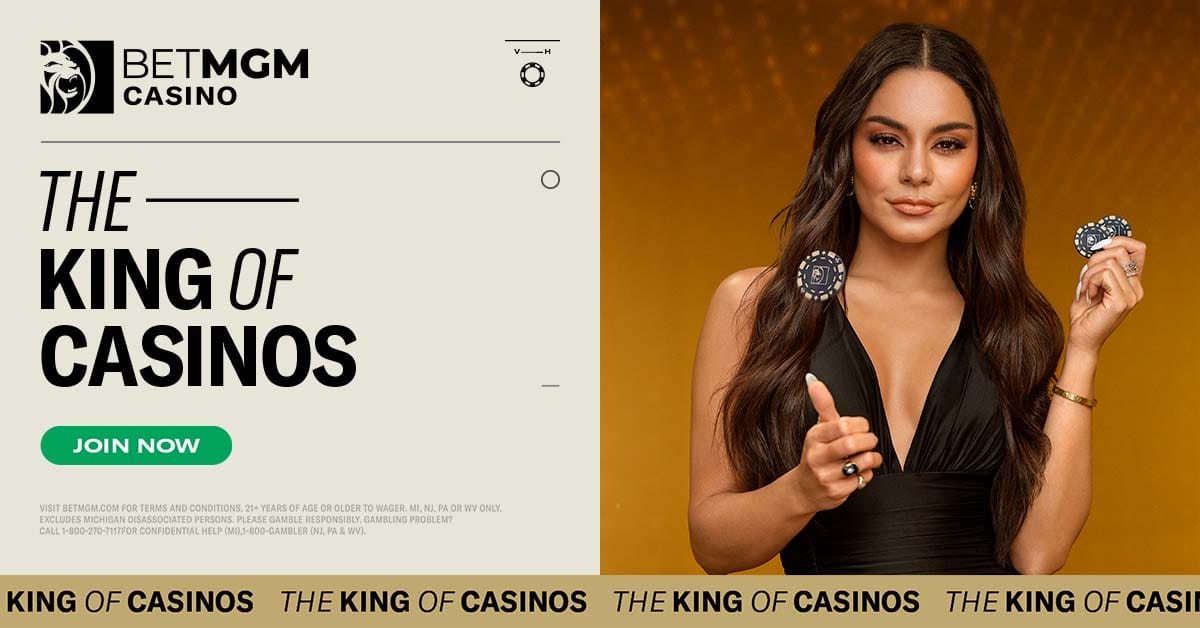Recreational gambling is meant to be fun. Whether you’re into sports betting or online casino games, the idea is to have a good time without going overboard or harboring unrealistic expectations of making big money. The key is to play responsibly and maintain a healthy balance between gambling and the rest of your life.
When balance is lacking, gambling stops being fun and develops into a problem. This includes compulsive and pathological gambling, where people are addicted to gambling to some degree. It’s easier to take a step back from gambling for some than it is for others. Some players may need a bit more guidance than a list of tips for responsible gambling to learn how to control their compulsions.
Fortunately, it’s possible to restore the balance between your gambling and your life with tools such as self-exclusion casino programs. It’s a means to put some distance between the gambler and the problem so they can get the help they need. Read on for a detailed look at what it means to self-exclude, when it’s a good idea, and how to do it.
What Is Self-Exclusion From Gambling?
Being added to a casino’s self-exclusion list means voluntarily applying to be excluded from gambling establishments such as land-based casinos, online casinos, and sports betting sites. Essentially, you’re asking these venues to refuse to serve you for a specific period.
Self-exclusion periods can encompass anything from a six-month suspension to banning yourself from a casino for life. Self-exclusion in the U.S. is typically enforced for periods of one year, five years, or a lifetime. During this period, gambling venues and sites will refuse you entry, none of the gambling service providers will contact you, and all marketing databases will remove your name. Moreover, the self-exclusion is fixed; you can’t cancel it before the exclusion period expires. This gives you the chance to remove yourself entirely from environments that may trigger the negative behaviors associated with problem gambling.
Common Reasons Behind Voluntary Self-Exclusion From Gambling
When someone feels like their gambling is becoming a problem that they may need some help to manage, voluntary self-exclusion from the casinos they frequent is a responsible step to take.
Here are a few of the reasons why someone might consider self-exclusion.
Gambling Isn’t Fun Anymore
The entertainment factor in gambling can be good for mental health. But, for some players, negative emotions such as stress, anxiety, or guilt replace the enjoyment they once found with gambling, so they turn to self-exclusion for their mental well-being.
Financial Concerns
Losing is a natural part of gambling, and while some can handle it well, there are a few people who chase their losses, spending money intended for something else and, often, losing that, too. This vicious cycle, and excessive gambling in general, can lead to financial strain, debt, and other monetary issues. Self-exclusion is a proactive measure some players take to prevent further financial losses.
Protecting Loved Ones
Problem gambling can have a significant impact on relationships. Someone may choose self-exclusion to protect their family and loved ones from the negative consequences associated with their gambling habits.
Recognizing the Need for Change
Choosing self-exclusion acknowledges the need for change, and reflects a person’s willingness to take responsibility for their actions and work toward a healthier lifestyle.
Problem Gambling
The most common reason people use self-exclusion programs is that they realize that they may have a gambling problem or addiction, and they’re looking for a way to break their cycle of compulsive gambling.
Seeking Help
Building on the previous point, self-exclusion is often part of a broader strategy for seeking help and treatment for gambling addiction. It can be a crucial first step toward accessing support services and counseling.
Gambling Problem Warning Signs

It’s important to understand the warning signs that it may be time to take a break from gambling, even if it’s a short one. Self-awareness plays a vital role when it comes to maintaining a healthy balance between gambling and life. It’s essential to check in on yourself from time to time and think about whether you’re really having a fun and healthy gambling experience or not.
Beyond that, is gambling causing problems with your health, finances, or relationships? Is it stressing you and the people around you out? When you gamble, are you focused entirely on winning back losses instead of having a good time?
It may be that you’re unable to control the urge to gamble. You may even feel as though gambling has taken over your life and is harming you emotionally and psychologically. If any of these symptoms ring a bell and you want to make a change, self-exclusion may be the way to go. Cutting yourself off from gambling entirely for up to five years may seem extreme, but the bright side is that in the end, you may be able to play your favorite online slots and casino games responsibly again in the future.
How To Self-Exclude From Gambling
The first step is to admit to having a gambling problem. This takes courage, so congratulations to all gamblers who have made the call.
The next step is to follow the appropriate gambling self-exclusion procedure. You might be wondering, “Can you self-exclude from all online gambling sites?” The short answer is yes, but gambling self-exclusion is state-specific. For example, In New Jersey, you must file a form in person at the New Jersey Division of Gaming Enforcement office in Atlantic City, or visit the New Jersey Racing Commission offices during business hours. You’ll also need to provide identification and have your photo taken. Once done, you’ll be placed on a self-exclusion casino list distributed to all land-based and online casinos in the state. You can find more about the self-exclusion procedure in your state by clicking on the “State Resources” tab on BetMGM Casino’s responsible gaming page.
Don’t think you have a gambling addiction but feel your habits have gotten a bit out of control lately? Then, it’s a good idea to learn how to self-exclude from online gambling at your online casino of choice — these casinos are required by law to offer a voluntary self-exclusion feature. At BetMGM, it’s simply a matter of clicking the “Time Out” button and choosing your exclusion period (from a few days to a maximum of one year). Once submitted, BetMGM will lock your account until the specified time has elapsed. For some gamblers, BetMGM Casino’s self-exclusion is enough to help them take a breather from betting and develop more responsible gambling habits. But, of course, if your gambling problem is more severe, you’ll need to embrace the longer-lasting gambling self-exclusion programs as explained above.
The Importance of Self-Care When Dealing With a Gambling Problem

Self-exclusion on its own isn’t enough to conquer an online gambling addiction. After all, the mere fact of being blocked doesn’t remove the basic desire for online gambling. Online gambling self-exclusion has to be complemented by self-care. This begins by seeking practical help.
Counseling is available nationwide from organizations such as 988 Suicide & Crisis Lifeline, Gamblers Anonymous, and the National Council on Problem Gambling, and every state has its own additional helpline and online forums. Again, the contact details are on BetMGM’s responsible gaming page.
After reaching out, looking for other rewarding activities that can substitute for gambling is a good idea. Be sure to let family and friends know you’re dealing with a gambling problem. That way, they can provide the positive support a recovering gambling addict needs to restore the missing balance in their life.
What Happens After the Self-Exclusion Period?
Unless you’ve chosen a lifetime ban, your self-exclusion period will eventually come to an end. When this happens, the process for regaining access to gambling varies depending on the state and specific casino or gambling facility. You’ll often have to contact the state gaming commission or a specific self-exclusion program administrator to request removal from the self-exclusion casino list. Some states also require you to attend a meeting or interview to assess your readiness to gamble responsibly.
Can you request the removal of a lifetime self-exclusion? In most cases, no — this is obviously in your best interests to help prevent the financial and emotional consequences of a gambling addiction.
Remember, if you do decide to try to gamble again (more responsibly) when your self-exclusion period comes to an end, you can still access resources and support for problem gambling if you notice a recurrence of unhealthy gambling habits.










